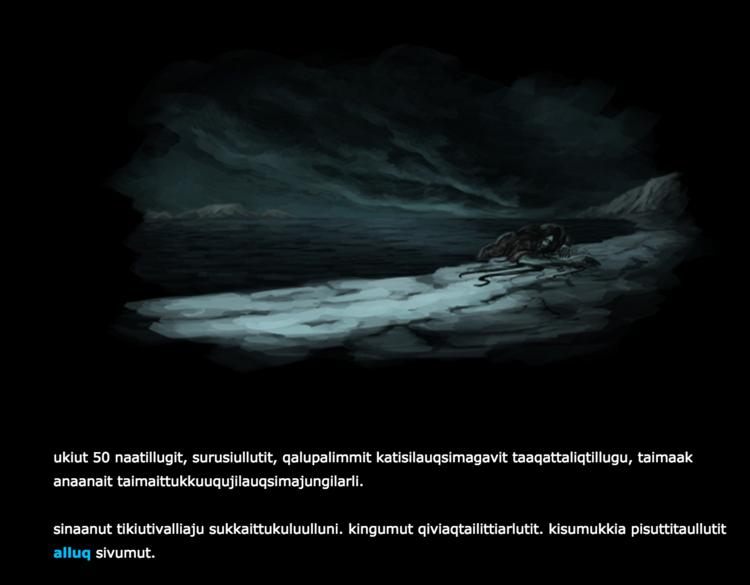New tool tranlsates Inuit syllabics into Latin alphabet

A Canadian technology company has created a Google extension that will allow people to convert Inuit language syllabics into Roman orthography.

Pinnguaq, a company based in the community of Pangnirtung in Canada’s eastern Arctic territory of Nunavut, developed the extension this year after signs the territorial government is exploring a move away from the syllabic alphabet in favour of Roman orthography in schools.
“Seeing that government support at all levels is going to move in this direction in terms of standarization of the written language and moving away from Inuit syllabics specifically… that was a good impetus to do it,” said Ryan Oliver, Pinnguaq’s director, in a telephone interview this week.
To find out more about the new Google extension, how it works and who it might help, Eye on the Arctic’s Eilís Quinn spoke to Pinnguaq’s director Ryan Oliver:
History
Though Inuit share the same language; dialects and writing systems vary widely across the North.
When missionaries began arriving in the Arctic to convert the Inuit to Christianity; Catholic, Anglican and Moravian priests all used different writing systems to translate the Bible into local Inuit dialects.
Roman orthography, also known as the Latin alphabet, is now used in Inuit communities in Canada’s western Arctic as well as in Nunatsiavut, the Inuit self-governing region in the Atlantic Canadian province of Newfoundland and Labrador.
Meanwhile, in Nunavut and in Nunavik, the Inuit self-governing region of northern Quebec, communities use the syllabic alphabet, a writing system where a symbol represents the sound of a consonant followed by a vowel.
Though Inuit language use is strong in some communities, especially in much of Canada’s Baffin Island region, English is the dominant language in most other areas across the Arctic. Inuit language use is generally in decline, especially among young people.
Standardized writing system
There has long been a move to standardize the Inuit language writing system, using Roman orthography to make it easier for young people to learn and facilitating the use of the Inuit language in areas like technology.
Though the idea is controversial, Nunavut’s education minister Paul Quassa said earlier this year that using Roman orthography in Nunavut schools could help strengthen the language and make it easier to share Inuit-language education materials across Canada’s Arctic regions.
VIDEO: Losing their Words: Can standardization revive the Inuit language? (A 2010 documentary from Eye on the Arctic)
Pinnguaq’s Oliver said the company’s new Google extension can help Inuktitut-language learners struggling with the syllabic alphabet. But it could also help fluent Inuit-language speakers from places like the western Arctic and Nunatsiavut access syllabic web content from Nuanvut and Nunavik, he said.
“The big idea behind the need to standardize the written language specifically is that it does open that many doors to communication,” Oliver said. “Anytime you have a language (like Inuktitut) that’s a not a dominant language in the world, it’s important to make it as accessible as possible and I think this tool provides that option.
“Just having that choice is going to welcome that many more people into the language.”
Write to Eilís Quinn at eilis.quinn(at)cbc.ca
Related stories from around the North:
Canada: Losing their Words (Video documentary), Eye on the Arctic
Finland: Language lecturer voted Finland’s Sámi of the Year, Yle News
Greenland: (VIDEO) The importance of perserving the Inuit language, Eye on the Arctic
Norway: Sami character keyboard app released, Barents Observer
Sweden: Social media strengthens Sami language, Yle News
Russia: Sami languages disappear, Barents Observer
United States: Alaska bill to be signed recognizing indigenous languages as official state languages, Alaska Dispatch



